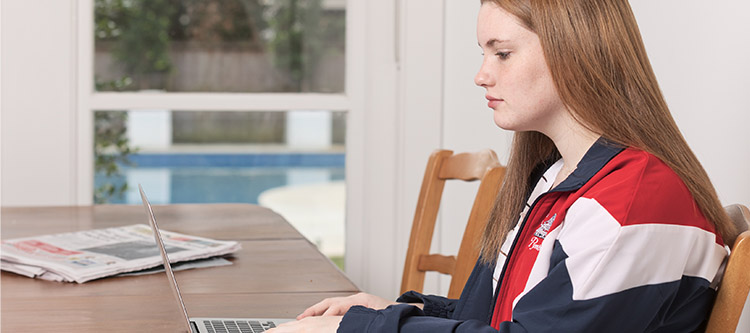‘Team Pymble’: how we moved learning online – and flourished!
Tuesday 26 May, 2020
Pymble Ladies’ College was one of the first schools in New South Wales to implement online learning amidst the outbreak of COVID-19, a transition two years in the making.
“We set up our online learning environment so that it mirrors a normal classroom as much as possible, so we can maintain those essential connections between our students and our staff,” Pymble Principal, Dr Kate Hadwen, said of the innovative move.
Dr Hadwen worked with Mr Anthony England, Pymble’s Director of Innovative Learning Technologies, to shift the school online.
“From day one, we’ve said that good online learning looks like connected learning, where we replicate the in-class experience that our teachers and staff have face-to-face,” said Mr England.
“Our online transition was two years in the making. When COVID-19 happened, we spent two weeks on intense implementing, so we could roll out a top-quality remote learning platform that covered students from Kindergarten to Year 12, and also catered for extra-curricular needs,” he said.
The school has adopted Microsoft Teams as a key technology to enable the move to online learning – and with solid plans in place for over a year, the transition was relatively smooth.
“We were able to deliver all of our learning remotely which supported both those learning from home and the children of emergency and critical workers who needed to remain on campus,” Mr England said.
“Our students got the same learning experience, whether they were on campus or at home.”
Co-learners together
Mr England said the whole school worked hard to adopt the new tool.
“We were all co-learners together, from teacher to student,” he said. “Taking a team approach made all the difference. We didn’t just have remote learning, we had complete remote classrooms.”
Staff undertook many hours of professional development, and students volunteered to be part of live performances broadcast to the rest of the school to test out the video classrooms.
“Everyone was putting their hands up to be part of it,” Mr England said.
Pymble had the technology in place already, Mr England confirmed, adding that Microsoft Teams is instrumental in enabling the school’s transition to online learning, with the program breaking down walls and extending connections outside the classroom.
As well as running lessons with students contributing, watching and listening in, teachers were also able to invite experts to participate and share their knowledge in ways that had not been done before.
“We also enabled chat functions and social groups so that we have a digital playground, where girls can safely keep up those critical social connections,” Mr England said.
The College made use of a range of different digital tools to enhance learning. These included Canvas (an online textbook where official assessments are completed), OneNote (a digital student notebook accessible to teachers), Seesaw (a Kindergarten to Year 6 learning journal and activities platform) and Digital Toolkits (a support site for students, teachers and parents developed by Pymble staff, outlining key information and necessary resources).
Practical magic
Mrs Kim Maksimovic is the Deputy Head of Learning (7-12) and also teaches Design and Technology at Pymble. She said that the COVID-19 era helped everyone in the school realise how important human connection is for learning.
“Video made a massive difference, being able to see and hear the girls and for them to engage with me has been lovely,” Mrs Maksimovic said.
Mrs Maksimovic has also found creative ways to keep students engaged in practical projects.
“Year 7 and Year 9 Technology students were making jewellery, something we usually do in a workshop, experimenting with materials,” she said.
Students used Adobe Illustrator to design the jewellery, sending their designs to their teacher, who had it printed using the laser cutting technology in the workshop, and would later send the prototypes out by post.
Major feat
“Gearing a school up for online learning is no mean feat,” said Dr Hadwen. “Our priority was to make sure that all of our beautiful girls continued to feel like important members of Team Pymble.”
Dr Hadwen said that each day, teachers across the school made it their priority to connect their students to the school, whether they were learning from the campus, or learning from their bedrooms.
The Principal added that students and staff were co-learners in new ways to deliver education as they prepared to move much of their learning offsite.
“At Pymble, we were certainly all in this together,” she said. “It takes a team effort to stay connected – and our students and our staff were very much up to the task.”



